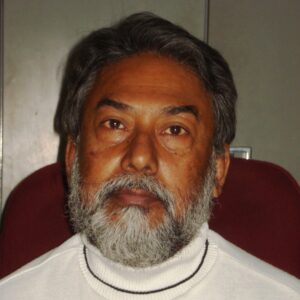To be caught in the high drama of a selection process to head a premier social science research institute leaves a bad taste. Despite being a forerunner for the post, it’s ugly when one sees the hands of invisible puppeteers, who know when to pull which string. One is reminded of the prophecy of the witches in Macbeth, Shakespearean tragedy, when one of them says, “Fair is foul and foul is fair.” Sadly, now it’s a part of our daily lives. In the same institute, students are under the spell of the administrative head. They dare not displease that person. One wonders when such ex-officio wisdom shall come to an end. Demonetisation and way people are rushing in the banks leave much to be desired in a civic society, opines Bhaskar, in the weekly column, exclusively in Different Truths.
Last evening, my friend, working as a professor of Economics, in Calcutta University, rang me up to inquire about the outcome of the selection process in a premier social science research institute. My response was, “It was ‘drama’, though premature… often one reluctantly participates in the drama knowing full well that s(he) is going to be victimised /exposed /ridiculed in the process. This happens for the simple reason that most of us walk on trajectories already constructed, however, thorny these are, and very few dare to take the self-constructed trajectory. The latter may be demolished by the more capacitated agencies.
Drama remains an integral component of human life for it is allegedly more civilised relative to its own past and relative to other species. But then if that drama causes purposive harm to people repetitively, then that drama becomes a cruelty, a costly joke.
Simple people in India however hardly realise and react to such costly humour – often the simplest of people are ridiculed by the crooks without realising its socio-cultural impact. In any case, my purpose is not to go into the sociological research of drama or costly humour or ridicule, for the simple reason that I am not at all a competent authority on this subject. But, I definitely was shocked, when standing at the very first level, got caught in the ugly dramatics. Becomes, the major criterion to be selected / nominated as the Head (read Director) of a social science research institute, in India, is sycophancy. One should know how to be a puppeteer and tug the invisible (or not so invisible) strings. Here the Shakespearian adage is so true, “Fair is foul and foul is fair,” as say the witches in Macbeth. Someone rightly said, “Sir, yahan kuch bhi ho sakta hai!” (Sir, anything is possible here!)
Ex-officio Wisdom
What follows is beyond my understanding of the ground reality in the domain of socially acknowledged higher education. I have been in in the institutions in West Bengal, UP and Bihar, a person to interact with students by contact hours. Many of the issues did not come up in such contact hours in West Bengal like, “Did you get food in the morning?” Or “What does your father do?” These I posed unashamedly in my PG-level classes, mostly in UP. I have reasons to believe that the students did not mind (I remember our class teacher in undivided Assam during mid-1960s used to ask me what fish/food I had for the general poverty there was rampant and that I was a little bit privileged because of my family background).
The problem is different here at Allahabad. A year back, I had to ask the students to stop quoting an ‘administrative authority’, on the theme that I was teaching. It seemed if they were quoting Amartya Sen! Over a period of time, I have been trying to encourage my D.Phil. students to come to my class, which they do, but feel shy/shaky to deliver for the same reason what the administrative authority might do to them! I find students, particularly in social sciences here have been somehow trained to believe that only the Head of the Department, of a subject and/or the ‘administrative head’ knows everything. I am pained that these students are in their infancy. They need guidance to come out from the influence of cobwebbed ex-officio wisdom.
Fools Rush in!
Since not-too-remote past I have been puzzled by the way different cross sections in the society have started reacting. Most of the people, above some level, by the parameters of publicity generally do not act – they react – often far beyond their capacities. I do not say they should remain incapacitated to react but then it surprises me when I find some of them in unwarranted patriotism mode (read jingoist), as if they are for the first time discovering patriotism, or are in damage control mode justifying something, which they do not understand in the first place. Yes, you understand, who I mean mostly, but not wholly, the people in the entertainment industry. The academicians are more cautious, they see both the sides – support and opposition, and future prospect – their views carry less weight of late as if of academic interest as in extinct five-day cricket.
I used to hear from an academician-turned- politician in West Bengal, “Be a common man”, but now I understand he must be repenting to have blessed me with that sentence. I, however, try to understand how it means – at least a good sleep at night at the end of the day – and that is our beloved PM has recently announced – but then common man sleeps well, whether or not they feel forced to stand in the long queue to give back what they had at home following demonetisation, which I understood today, at lunch time, when I bought three pieces of desi bread from a shop adjoining my social science research institute, through which I draw people’s money.
I ardently hope that the damage controllers and self-claimed patriots sleep well!
©Bhaskar Majumder
Photos from the Internet.
#Slection #FairAndFoul #WestBengal #DPhil #Allahabad #Directors #Economic #Opinion






 By
By
 By
By
